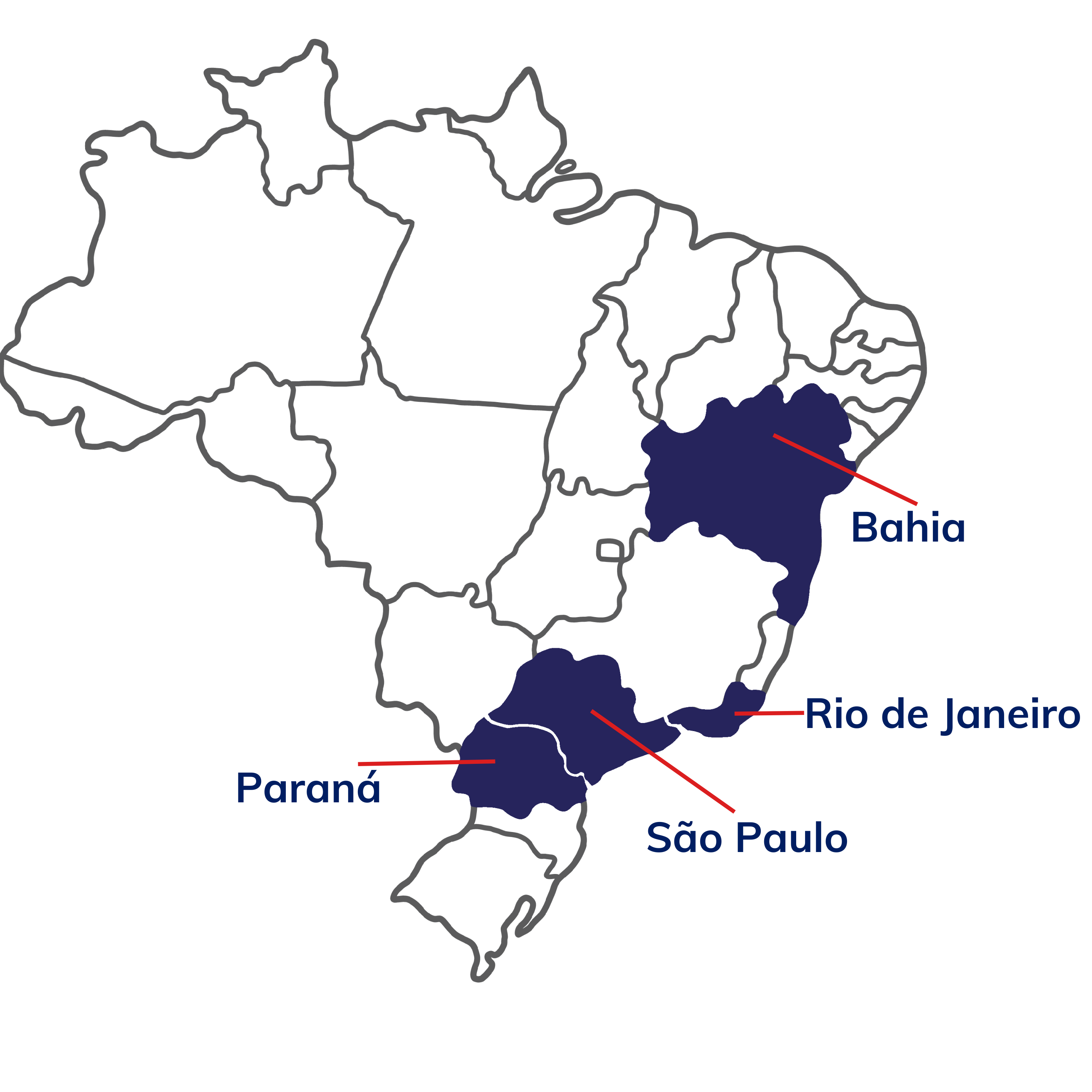Countries:
Brazil
Status:
Completed
Sector:
Nature
Promoting the adoption of large scale agroforestry systems in the Atlantic Forest to support carbon capture and sustainable development in Brazil.
Agroforestry systems can contribute to the conservation of the biome while reducing global climate change through carbon sequestration – and generating income for people living in the Atlantic Forest.
The project aimed to create institutional and technical incentives to support the implementation of large scale agroforestry in three regions of the Brazilian Atlantic Forest: MAPES (Bahia state), MCF (Rio de Janeiro state) and Lagamar and Vale do Ribeira (São Paulo and Paraná states).
To achieve this, the project focused on three pillars:
Agroforestry can transform people's lives. Since its inception, the project has had a strong GESI component, targeting family farmers and traditional communities. It also focused on women, as they often depend on agriculture for subsistence and are among the most susceptible to the impacts of climate change.
The project’s activities also significantly contributed to increased awareness of the opportunities of agroforestry systems to support a green recovery, carbon sequestration, and income generation in the Atlantic Forest.
The project was delivered by Agroicone in partnership with Iniciativa Verde and Movimento de Defesa de Porto Seguro (MDPS).
“When we first heard about this project, we were sceptical; will this really happen? I wouldn’t be able to set up an agroforestry system on my own. With the project’s help, it was possible to implement an agroforestry system in two days. This project is giving us more motivation to work.”
Neusa Benevides Marcelino
Farmer, member of Associação de Agricultores do Fojo (AFOJO)
“The classes and the exchange of experiences brought practical examples of product processing and even other ways of generating income such as the carbon market and Payment for Environmental Services (PES).
Even more valuable is to envision an agroforestry network in the Atlantic Forest that will bring income and security to farmers who seek to regenerate this biome.”
Pedro Fischer
Family farmer

people attended the capacity building workshops across the three regions
agroforestry demonstration units were set up, covering eight hectares
people completed the e-learning course on agroforestry product marketing
people across the three regions joined the Regional Agroforestry Networks
To promote agroforestry in the target regions, the project delivered a range of activities across three pillars:
(out of 580) workshops participants were female
of members of the agroforestry networks are female
of people who completed the e-learning course were family farmers
of people who completed the e-learning course were female
Given the nature of the counterparts targeted by the project, all activities demonstrated a strong GESI component from the outset. Family farmers, traditional communities and women are more exposed to the negative impact of climate change as they depend on agriculture as their sole source of income. Additionally, they also face many challenges in accessing credit and technical education, as well as technological resources and skills. This perpetuates a cycle of poverty and vulnerability.
The project addressed these challenges mainly through the delivery of targeted training and practical workshops on the management of agroforestry systems in the 22 Demonstration Units. These were experimental areas of where rural landowners, farmers, technicians and students gathered to learn about restoration techniques and the technical skills needed to set up their own agroforestry systems.
Additionally, the created agroforestry networks provided a formative space for dialogue and collaboration. The efforts to create a gender balanced group led to greater female participation in the network meetings in all locations, with a female participation rate of 53%. Women in the group have improved their understanding of how conservation is essential for their livelihoods and that of future generations.
The implementation of these activities generated a stronger sense of community and collaboration, encouraging people of all ages and genders to get involved.

The project laid the foundation for long-term, transformational changes through critical progress across the three pillars of the work – governance, capacity and markets.
However, the project's long-term sustainably hinges upon the realisation of visible economic returns through agroforestry to significantly improve farmers' livelihoods. The agroforestry networks created, the training guide and booklets developed, the marketing materials and business plans delivered, and most importantly, the coordination efforts to connect several actors will certainly contribute to maintaining and amplifying the impact of the project beyond its lifetime.
Overall, the SiAMA project built good relationships with people and organisations in the target regions and ensured active participation of family farmers. This approach was fundamental in building a strong network. However, these relationships will need be nurtured and strengthened to ensure the results achieved are not lost and generate transformational changes for rural communities and deliver mitigation and adaptation benefits.
UK PACT (Partnering for Accelerated Climate Transitions) is a unique capacity-building programme. Jointly governed and funded by the UK Government’s Foreign, Commonwealth and Development Office (FCDO) and the Department for Energy Security and Net Zero (DESNZ) through the UK's International Climate Finance, it works in partnership with countries with high emissions reduction potential to support them to implement and increase their ambitions for tackling climate change.
© Copyright 2025 UK PACT Privacy Notice Cookie Policy